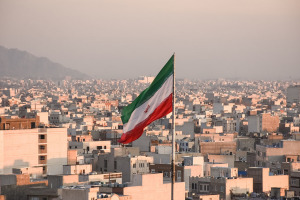Pharaoh's Daughter - A Woman with a Backbone
"And the daughter of Pharaoh came down to wash herself at the river; and her maidens walked along by the river's side; and when she saw the ark among the flags, she sent her maid to fetch it. And when she had opened it, she saw the child: and, behold, the babe wept. And she had compassion on him, and said, 'This is one of the Hebrews' children.'"
Exodus 2: 5,6
King James Version
EXPLORATION
"Pharaoh's Daughter – A Woman with a Backbone"
"Never grow a wishbone, daughter, where your backbone should be."
Clementine Paddleford
When I hear someone described as a person with a "backbone," what thoughts come to my mind?
Who Stands Fast?
"Only the (woman) whose final standard is not (her) reason, (her) principles, (her) conscience, (her) freedom, or (her) virtue, but who is ready to sacrifice all this when (she) is called to obedient and responsible action in faith and in exclusive allegiance to God – the responsible (woman), who tries to make (her) whole life an answer to the question and call of God."
Letter from Prison
Dietrich Bonhoeffer
INSPIRATION
"Do not follow the crowd in doing wrong…."
Exodus 23: 2
N.I.V.
She was a beautiful young woman, living in the lap of luxury, in the greatest country in the world. She could have anything her heart desired for her father ruled the land.
But a heaviness weighed on her heart. She had heard the tales of horror. Hebrew babies tossed into the Nile River like garbage – at the order of her father, no less. I believe if I had been Pharaoh's daughter, I might have stayed as far away from the Nile as possible. First, as a member of the royal family, someone might want to take out their anger against my father on me. And second, if I had been Pharaoh's girl, I wouldn't want the heartbreak of seeing babies thrown as lunch meat to the crocodiles.
But on this particular day, the Bible tells us Pharaoh's daughter went to the Nile to "wash herself" or bathe. Several summers ago, my then 19-year-old niece, Bethanie, took a college tour of the Sinai desert and Egypt. She spent several days on a very "primitive" boat on the Nile. I can say this – she did not want to bathe in the waters of the Nile. However, thousands of years ago, the Nile was considered to contain "sacred" water. Without pollution and a greatly expanded population, the Nile was a treasured jewel in the desert.
As Pharaoh's daughter walked near the river's edge, she spotted a little "ark." A well-made protective carrier, hidden in the bulrushes that lined the river bank.
Without hesitation, this princess of Egypt instructed her handmaiden to go and retrieve the little "ark."
I want to direct your attention to three things the passage in Exodus 2: 5,6 tells us about Pharaoh's daughter.
First, she was a woman of compassion. When she opened the lid to the protective shelter, the baby began to cry and we are told, "Pharaoh's daughter had compassion." Lord Byron observed that "the dew of compassion is a tear." Since it is not recorded in Scripture that Pharaoh's daughter had any other children, perhaps a very deep longing or a painful hurt in her heart was touched as she heard the cries of that innocent baby. Whatever reason, we know that all the emotions of sympathy and compassion were called forth in her heart.
Second, she was a woman with courage. Who knows if her father's soldiers were watching? Who knows what consequences she would face for disobeying her father's order? But none of this mattered to Pharaoh's daughter. As author Dorothy Thompson so aptly notes: "Courage, it would seem is nothing less than the power to overcome danger, misfortune, fear, injustice." This is exactly the kind of courage it took for Pharaoh's daughter to rescue a Hebrew baby boy from certain death.
And third, she was a woman with a conscience. The Bible says that Pharaoh's daughter immediately recognized that this baby must be the child of a Hebrew mother. Obviously this mother wanted desperately to save the life of her precious child. Not only did Pharaoh's daughter admire a woman so determined to save her child, she decided to help her. It didn't matter to Pharaoh's daughter if everyone in Egypt wanted to kill babies, she wasn't going to be part of the barbaric activity. As Harper Lee said in "To Kill A Mockingbird," "The one thing that doesn't abide by majority rule is a person's conscience." Nothing more true could have been said to describe this Princess of Egypt. For not only did she save this special baby boy but she paid his own mother very well to take care of him.
Pharaoh's daughter – a woman with a backbone composed of compassion, courage and conscience. May we too be called "women with a backbone."
"Cowardice asks the question, 'Is it safe?' Expedience asks the question, 'Is it political?' Vanity asks, 'Is it popular?' But conscience asks the question, 'Is it right?'"
Author Unknown
AFFIRMATION
"O Lord,
whatever the world may say,
may we only pay attention
to what you are saying to us,
and seek only your approval,
which far outweighs any honour or praise
that the world might bestow or withhold."
General Gordon
1833-1885
Your friend,
Dorothy Valcarcel, Author
When A Woman Meets Jesus
[email protected]




























